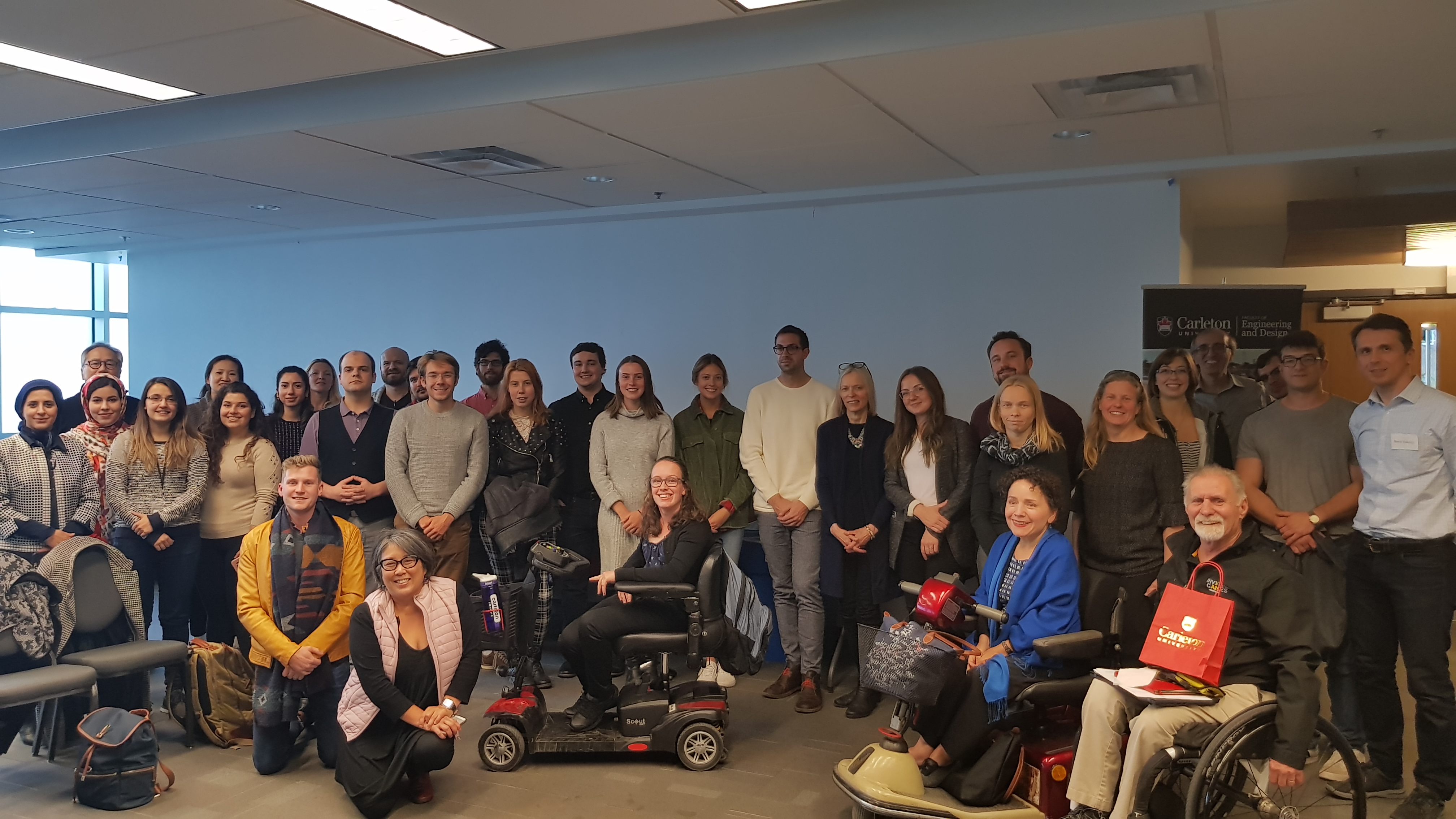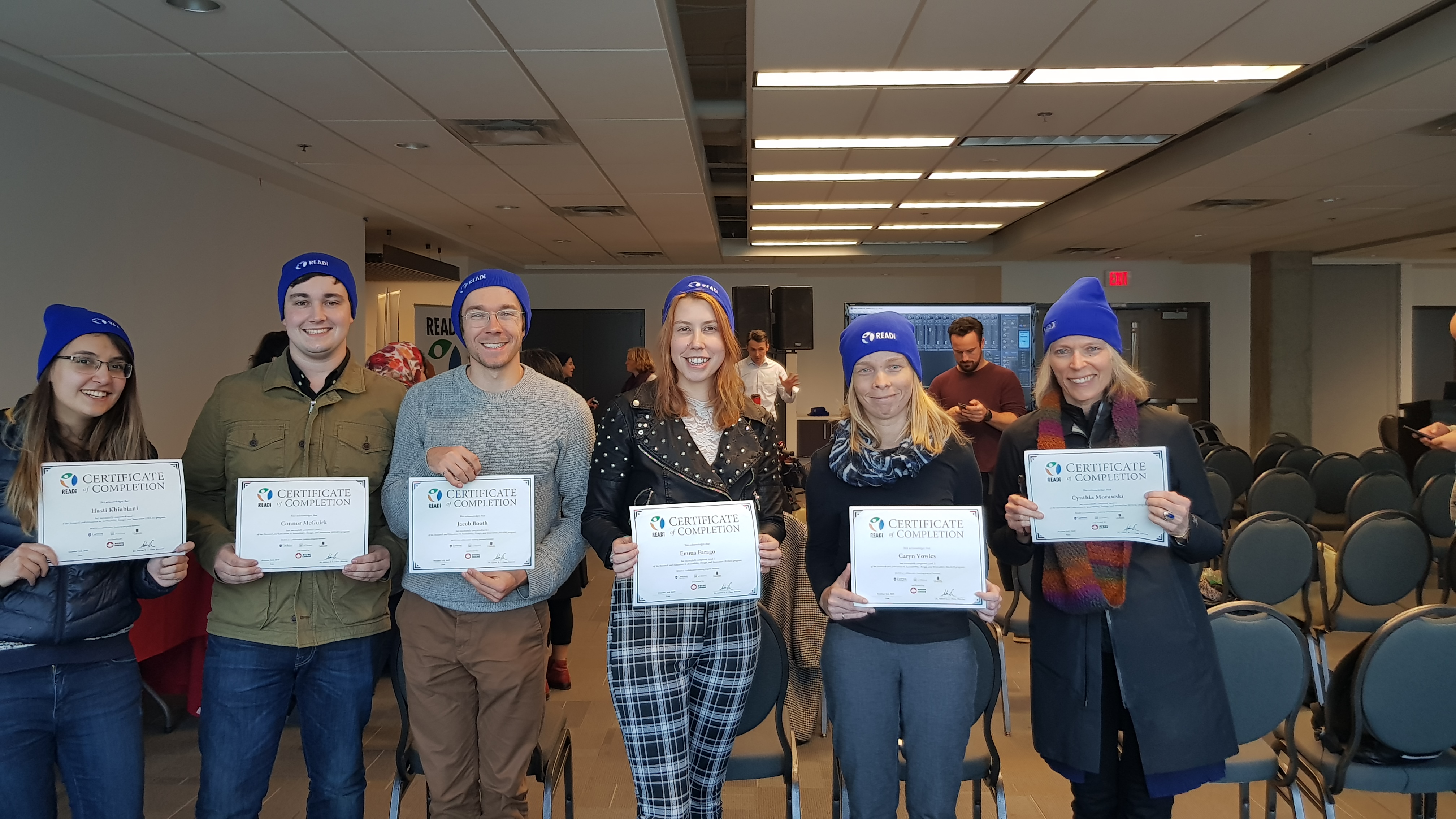The Research and Education in Accessibility, Design, and Innovation (READi) training program is entering its third year and celebrated with the third annual Symposium.
Students and guests shared learnings through multidisciplinary research and practice at Carleton University, University of Ottawa and Queen’s University, in collaboration with many organizations dedicated to improving accessibility.
READi is unique with its cohorts of students from multiple universities, who retain a research focus in their home programs (e.g., engineering, information technology, design, human-computer interaction, and music), and adds theory and practice (learning by doing) in accessibility under the guidance of an interdisciplinary team. READi acknowledges the importance of affective learning (emotion/feeling), where trainees not only gain the knowledge and skills to meet accessibility needs (i.e., cognitive learning) but also develop the inspiration and motivation to do so.
The second cohort of READi students delivered presentations that describe the accessibility issue they tackled, the knowledge and ideas that were developed, and their learning journey. Keynote speaker, Emily Glossop shared her personal and professional experiences working in the field of accessibility. Hannah MacLellan gave a talk entitled, “The Importance of Advocacy for Individuals with Disabilities”, about her own advocacy work as a person living with Cerebral Palsy. Panelists Max Brault, Vice-president of Strategy and Operations of BDO Canada, Thomas Simpson, Head of Public Affairs for the CNIB Foundation, and Dean Mellway, Special Advisor to the READ Initiative, joined moderator and READi faculty member, Mojtaba Ahmadi to speak about Accessibility Legislation and the Accessible Canada Act.

READi Attendees pose together at the end of a day full of learning and exchanging information.

READi graduating students pose with their certificates and their blue READi beanies.